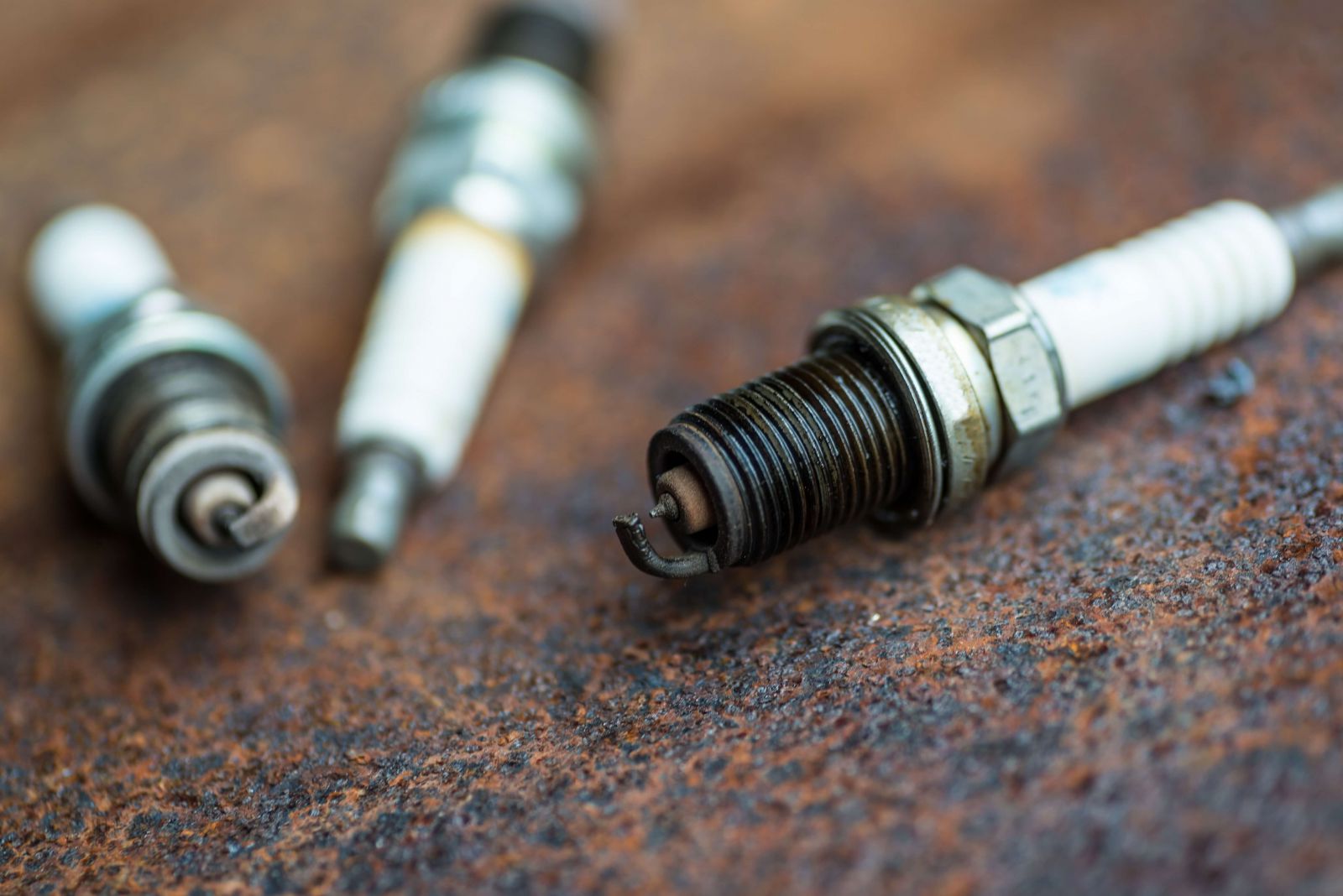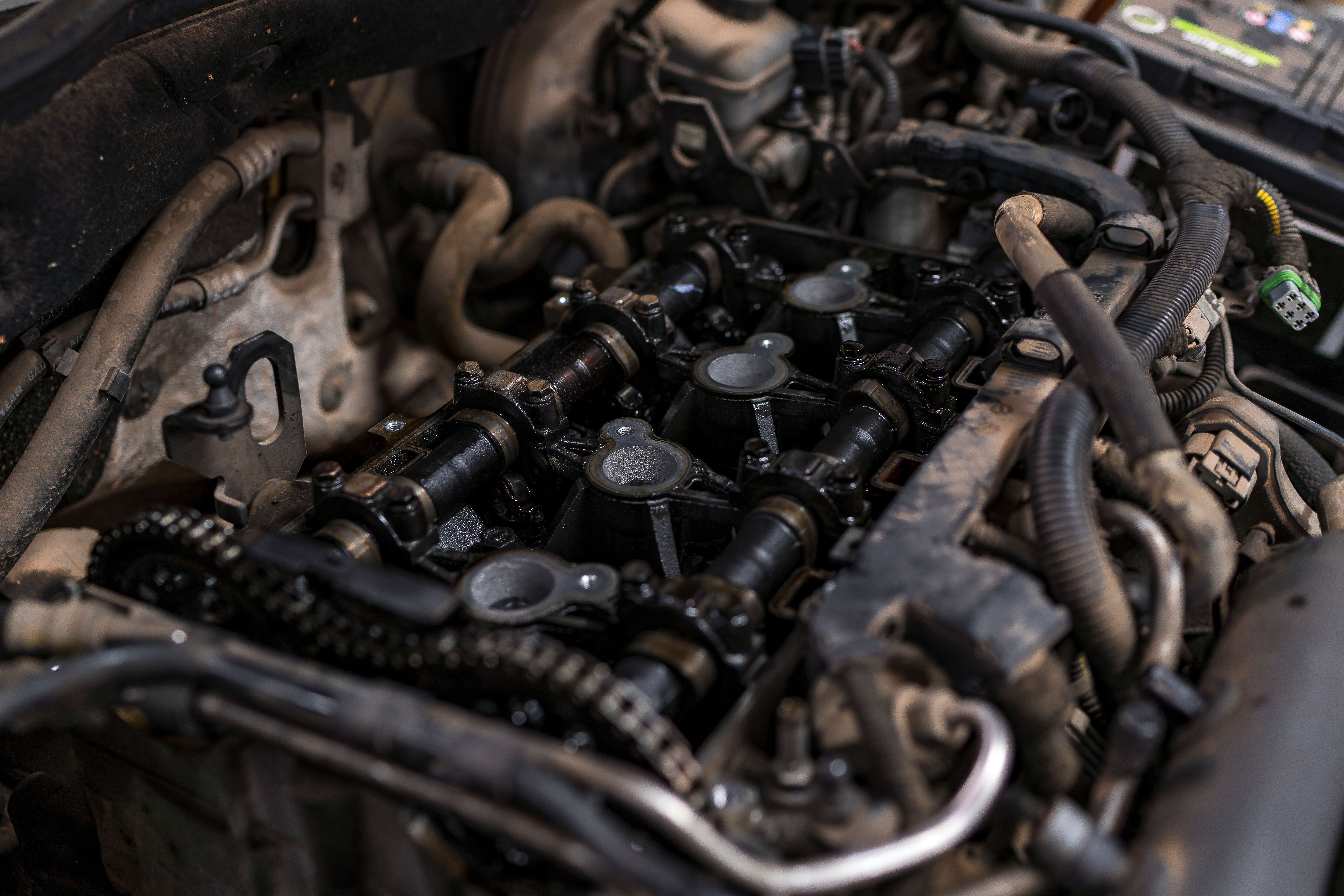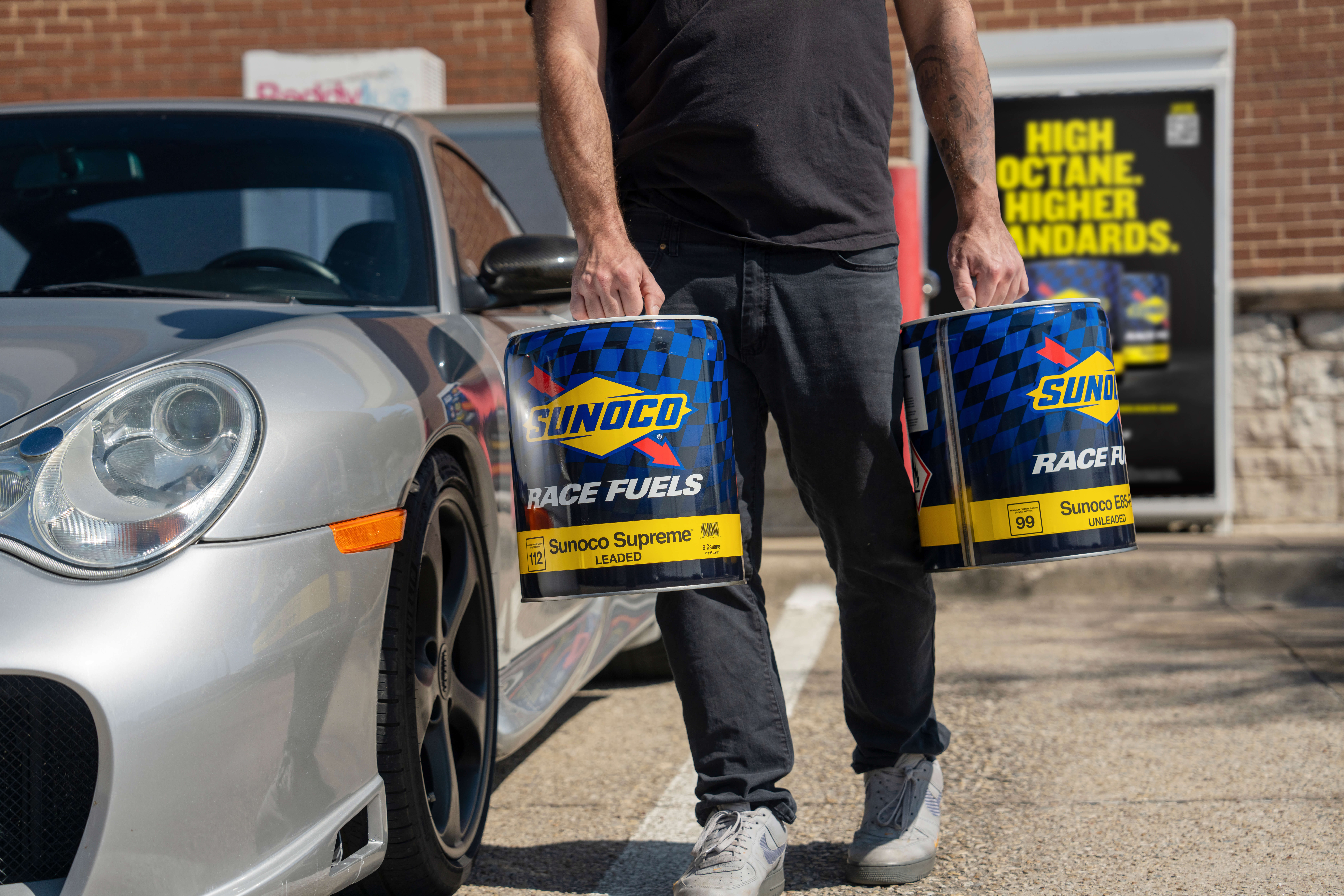Performance Fuels

The Perils of Running Rich
- Category:
- Fuel Facts
by Classic Motorsports
Posted on 6/20/2024

Running an engine too rich doesn’t just waste money. According to Zachary J. Santner, senior specialist of quality at Sunoco, it might cause several major driveline problems as well.
Fouled Spark Plugs: If the engine can’t burn all the fuel dumped into the combustion chambers, hard carbon deposits can form on the spark plugs. The potential result? Ignition problems.
Hard Carbon Buildup: That carbon won’t just stick to the spark plugs; it can build up on the tops of the pistons, too. “That can do funky things regarding drivability,” Santner notes, adding that hard carbon deposits can soak up wet fuel–picture them behaving like a sponge–and then lean out the air/fuel mixture. Really heavy carbon deposits, he continues, can increase the engine’s compression ratio, leading to preignition and higher operating temperatures.
Accelerated Engine Wear: Gasoline is a terrific solvent for motor oil. As Santner explains, likes dissolve likes–meaning that gas will dissolve oil. That extra gasoline in the combustion chamber? What do you think it’s doing to the film of oil that should be protecting the walls of the cylinders? And if the engine runs so rich that gasoline gets down into the bottom end, you can imagine the terrible consequences for your bearings.
Clogged Catalytic Converter: Remember those carbon deposits we mentioned? Catalytic converters are also susceptible to them, and they can clog up the honeycomb substrate. Then bad things happen, from a car running poorly to backfiring to a catalytic converter coming apart.
The obvious solution to the above: Operate a properly tuned engine. An air/fuel gauge–AEM and others offer several options–can tell you exactly how well the engine is burning the gasoline. Running a Top Tier fuel, Santner adds, can also help combat those carbon deposits thanks to its extra detergents.




